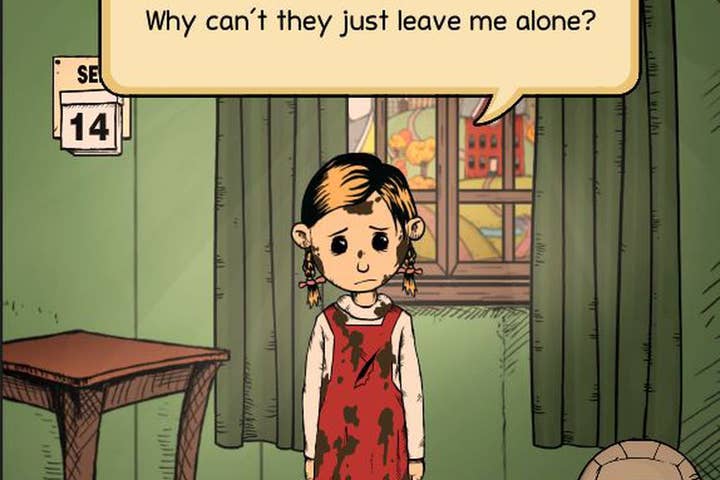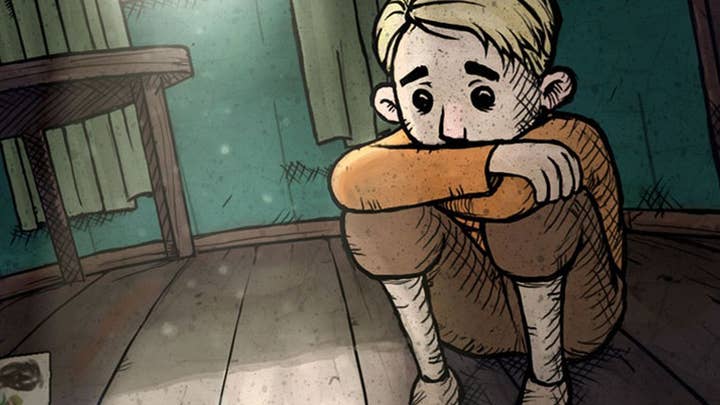European Union sets limits on platform madness
A new regulation will create a more fair and transparent relationship between games companies and the app stores
Yesterday, on July 12, 2020, a new EU regulation bringing significant new rights for European game developers and publishers against game distribution platforms came into effect.
Among other things, the new rules will create limitations for the ways games can be removed from digital distribution platforms operating in Europe -- forcing these platforms to build internal complaint handling mechanisms, and introducing new mandatory requirements on notifying game developers and publishers beforehand on any upcoming changes in terms and conditions.
New rights for European game developers and publishers
At Apple WWDC this year, the company announced that it will allow developers to challenge its decisions over App Store Guidelines. However, mandatory internal complaint handling systems (Article 11) is only one of the safeguards the new regulation introduces for game developers. Furthermore, the new rules also apply to Google and many other games distribution platforms, not just on Apple:
- A fairer process for removing games from online stores: Until now, platforms have been able to remove any game whenever they want for any reason they want, and platforms are known to remove games and other applications for arbitrary reasons -- for example, My Child Lebensborn was removed from Google Play store in 2019. If that had happened in autumn 2020 under the new EU rules (Article 4), Google would have been forced provide a statement explaining why the game is being removed at least 30 days beforehand. After that, Sarepta Studio would have an opportunity to complain or make necessary changes before the game was removed.
- Transparency of rankings: The new regulation will also make the ranking criteria in online stores more transparent (Article 5). What this means in practice will be clarified when the Commission publishes more detailed guidelines on the transparency of ranking algorithms in the near future. These new transparency requirements will hopefully reduce the need for app store optimisation services, therefore levelling the playing field for small developers and publishers.
- Transparency of differentiated treatment: There have been some rumours about platforms providing better treatment for bigger developers and publishers. If that kind of practices exists, under the new EU rules the platforms have to make any differentiated treatment fully transparent (Article 7).
- Better transparency of data access rights: For years it was often unclear what data the platforms collected from games -- even to the developers. GDPR brought some transparency on the personal data collected by platforms, and now, new data access rights (Article 9) will force platforms to become even more transparent on access to the data. If the new regulation is implemented so that platforms list all personal and non-personal data they collect, and become fully transparent on both what data they provide access to and what data they do not provide access to, it will significantly help to evaluate data breach risks connected to the use of those platforms. Sometimes, a single set of data might not be personal data in the hands of a game developer, but might be when combined with data that the platform has access to.
- More understandable and predictable contract terms: Currently, the platforms' non-negotiable standard terms and conditions are not easy to understand even for legal professionals, and they can be changed without any prior notification. After July 12, they must be drafted in plain and intelligible language and any changes must be notified at least 15 days beforehand (Articles 3 and 8).

Console and subscription services will retain their power
The scope of the regulation is limited to platforms that allow developers and publishers to offer their games to players, where the platform facilitates direct transactions between developers and publishers and the players.
Console manufacturers' online stores do not, therefore, identify themselves as marketplaces like Apple's App Store or Google Play, which clearly fall under the new regulation. Instead, they regard themselves as digital retail stores that enter into direct transactional relations with players, and do not fall under the new regulation as "online intermediation services" that facilitate the initiating of direct transactions between developers/publishers and players.
Until now, platforms have been able to remove any game whenever they want for any reason they want
Furthermore, the scope of the new EU regulation will be limited to terms and conditions that are unilaterally determined by the platform. Whether or not terms and conditions are unilaterally determined shall be evaluated on the basis of an overall assessment, whereby the relative size of the parties concerned, the fact that negotiation took place, or that certain provisions thereof may have been subject to such negotiation and determined together by the relevant provider and business user shall not, in itself, be decisive.
Therefore, on subscription services like Apple Arcade, when the contracts between game developers/publishers and the subscription service are clearly negotiated, they are also likely to fall outside the scope of the new regulation.
What's next for European platform regulation?
Getting the first ever EU regulation on platforms approved was one of the main victories for EGDF under the Juncker Commission term. Now, under the Von der Layen Commission term, EGDF will closely monitor the impact of the new European platform regulation on game markets, and continue to support the European Commission in tackling the challenges, that cannot be solved in any other way, through updating the EU regulation.
Unfair market practices can be tackled, but only if game developers and publishers talk about them
First of all, most of the issues addressed by the European platform regulation -- like understandable contract terms and more fair processes for removing games from application stores -- could have been easily solved without a regulatory intervention. Therefore, in the short run, EGDF hopes that new regulation will inspire platforms to start a dialogue with European game developers on improving their business practices -- like providing financial data in time for local tax reporting in Europe or protecting artistic freedom of game developers -- so that there would be no need for specific regulation of distribution platforms.
Secondly, in the long run, it is clear that Europe needs a general regulation for unfair, non-negotiable business-to-business contract terms. Increasingly, the big challenges game developers face are not linked with game distribution platforms, but with unfair contract terms with other third-party service providers in general.
Some advertisement and social media service providers, for example, currently force game developers and publishers to implement their own data tracking and analytics tools. It is not a sign of a healthy market if developers have to approach the SDKs of these services as potential malware from a data protection perspective. It should be under the freedom of developers and publishers to evaluate and decide what tools they want to use for processing their players' data, and players to decide which one of the competing services they want give their data to.
A wider regulation of non-negotiable contract terms will also bring much-needed predictability to the games industry ecosystem. Considering the aforementioned privacy challenges with social media services and ad networks, it is completely understandable that Apple also announced at WWDC that it is going to set much stricter limits for the use of advertisement identifiers. However, it is clear that a two month notification period, in the middle of the European holiday season, is not long enough to introduce that kind of fundamental change, causing significant uncertainty and challenges on the use of third-party services in mobile games.
Thirdly, EGDF will closely monitor the development of the contract terms of subscription services. On the one hand, the current upfront payments on new games make subscription services highly interesting for many indie developers and publishers. On the other hand, subscription services are potentially pushing game developer studios and publishers to the same weak market position as production companies are facing with Netflix: no access to data, highly limited analytic tools, and much smaller share of revenues than in other distribution models.
Unfair B2B market practices can be tackled, but only if game developers and publishers talk about them. EGDF calls all game developers and publishers to report any unfair treatment they receive from platforms or any other B2B service.
Jari-Pekka Kaleva is a games policy expert and the COO of European Games Developer Federation (EGDF) and the senior policy analyst in Neogames Finland. He has been following European politics on behalf of European game developers for more than ten years.









